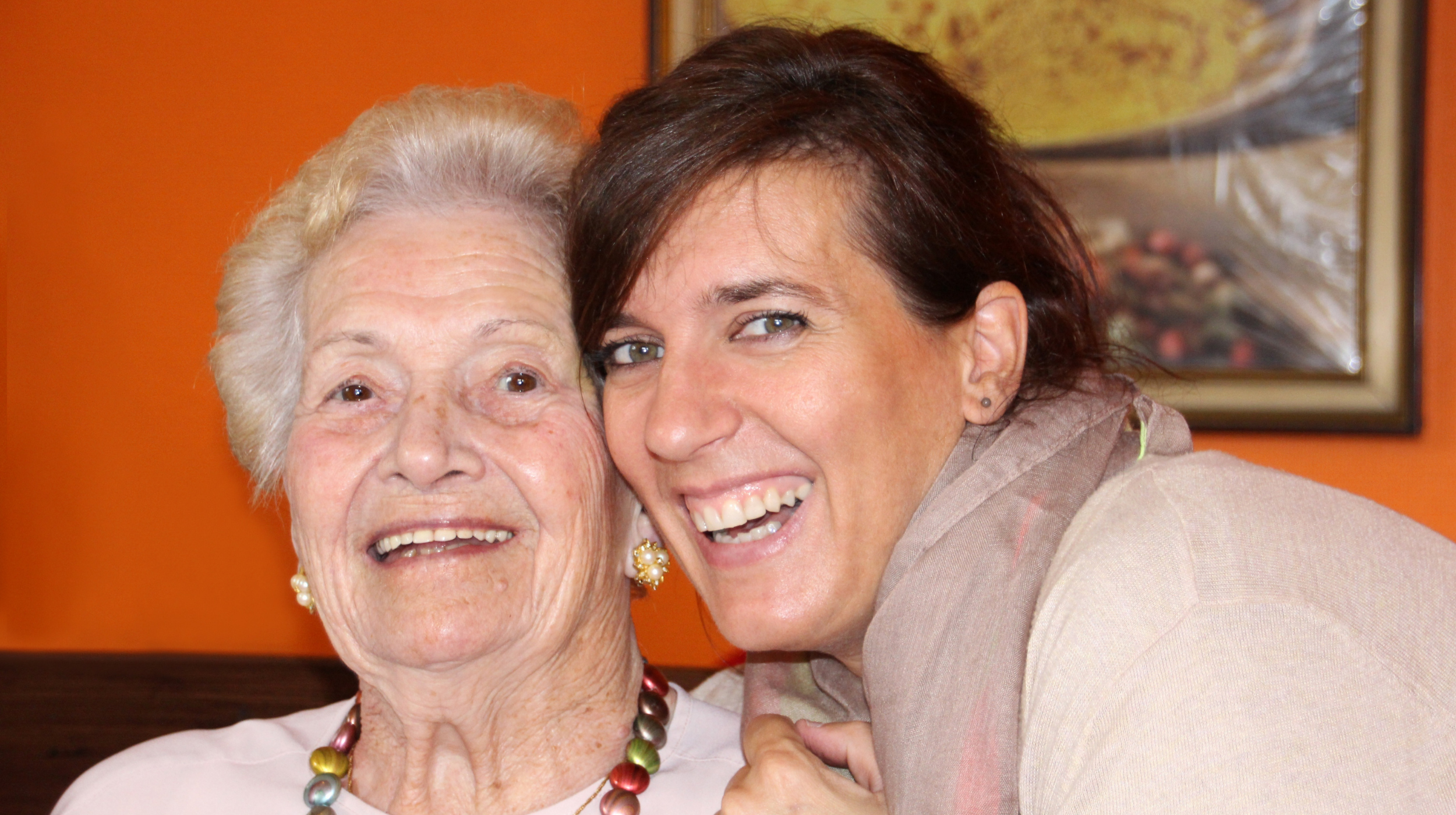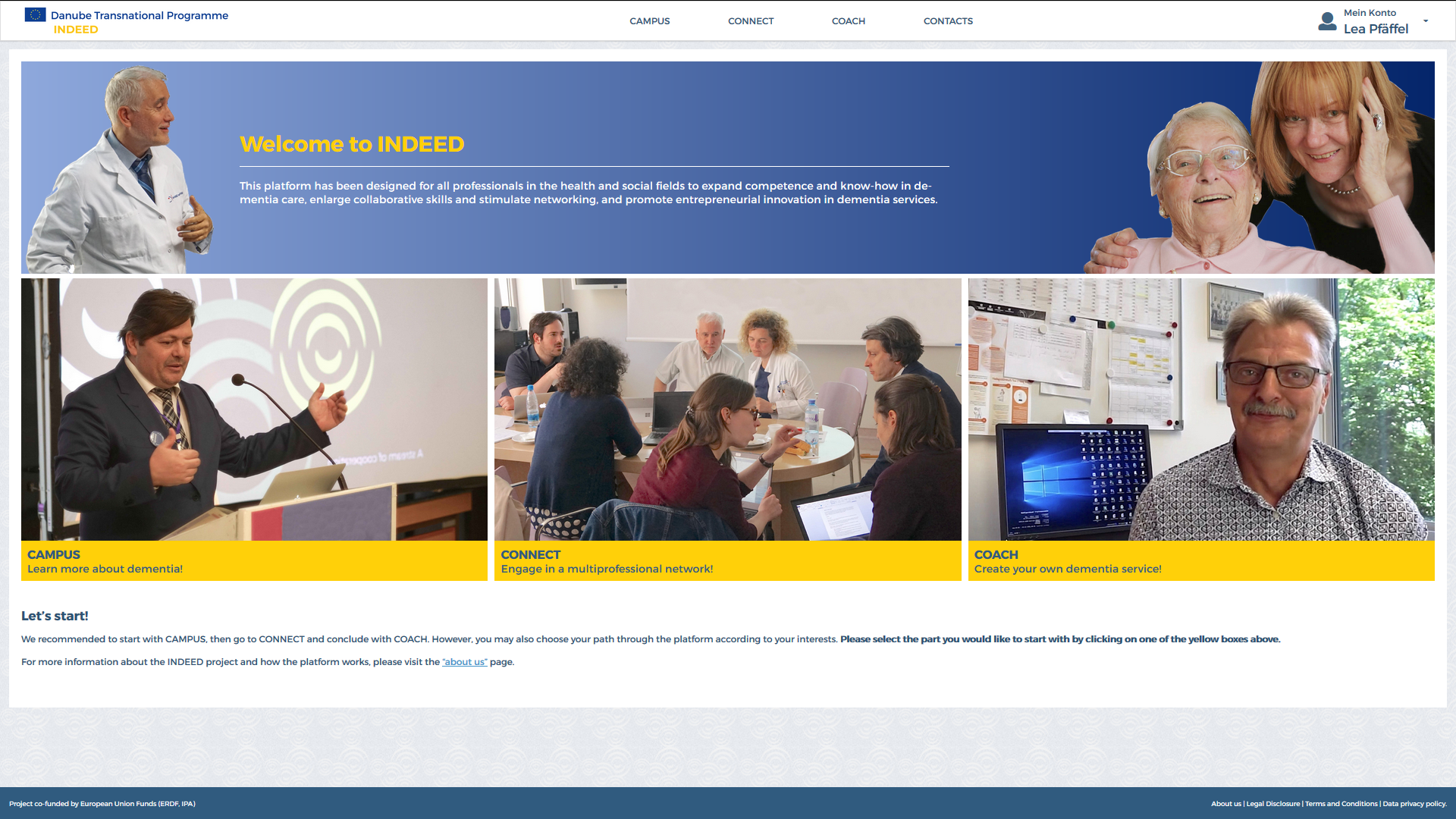INDEED - Digital tools improving the quality of life of people with dementia
10-08-2021
In many countries of the Danube region, people suffering from dementia do not receive adequate and timely care. Its availability remains a challenge due to a lack of public awareness, limited human resources and insufficient collaboration among health and care professionals as well as entrepreneurs. Intereg Danube Indeed project aims to tackle this with the use of digital tools.
March 17, 2021
 Image: Canva
Image: Canva
About 1.6 million people are currently living with dementia in the Danube region. Due to rising life expectancy in Eastern and Southern Europe in the coming decades, this number is expected to increase by 50%. Since 2018, a consortium of 20 partners from 10 countries has been developing an educational platform for professional groups involved in the care of people with dementia, aimed to improve regional preparedness to manage the worsening situation.
Shared education to improve dementia care
Designed to complement competences of the diverse group of dementia care professionals, INDEED platform helps create common knowledge of the illness, with special emphasis on early detection and intervention. Its educational content is tailored to complement occupation-specific trainings and is based on modern didactic concepts. „In previous projects we have learnt that multiprofessional shared education is the way to achieve high-quality dementia care. Key for success is to create a common understanding of the illness, with special emphasis on early detection and intervention. This is essential to improve and maintain the quality of life of people living with dementia,” says Cătălina Tudose, president of the Romanian Alzheimer Society from Bucharest, Romania.
By connecting key professionals such as physicians with service providers and care facilities, the platform deepens the understanding of each role in dementia care. It features various media including animated videos, interviews, quizzes, infographics, and charts to best meet the informational needs of medical and social care professionals as well as entrepreneurs. „It offers know-how and advice on how to develop, implement and sustain innovative health and social services in the dementia care landscape. This is unique because it contributes to creating a fresh business-oriented climate in countries where social entrepreneurship does not have a tradition,“ says Osman Kučuk, founder of Association AiR in Sarajevo, Bosnia and Herzegovina.
The platform has already proved to be very successful with 186 registered users after it was launched in Bulgaria and Slovenia in January 2021, with the Romanian, German and Slovak version currently under development. The English version of the INDEED online platform was piloted in a virtual summer school for students in dementia care of Technical University of Munich and University of Skopje, with 92% students reporting that they gained a better understanding of the importance of collaborative care.
Key for success is to create a common understanding of the illness, with special emphasis on early detection and intervention. This is essential to improve and maintain the quality of life of people living with dementia.”
Cătălina Tudose, President of the Romanian Alzheimer Society
 Image: Indeed
Image: Indeed
What's next?
While digital tools such as the INDEED platform are a great opportunity to help with the access to dementia-related knowledge, it has to be placed high on public and political agendas too. Bringing together health and social policy makers, representatives of local and regional institutions involved in dementia care and promoting the education intervention in national dementia plans will be on the project agenda until it ends in June 2021.
